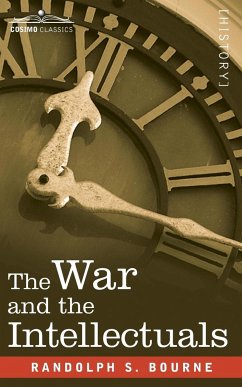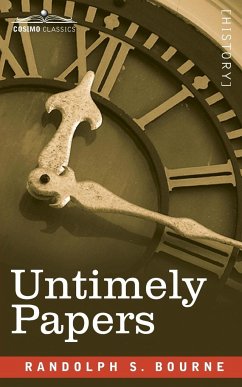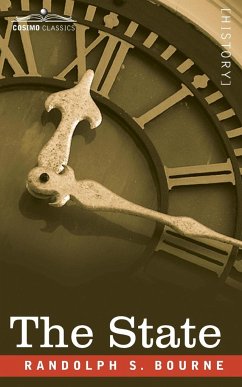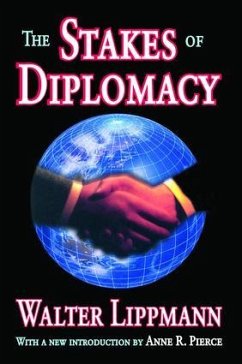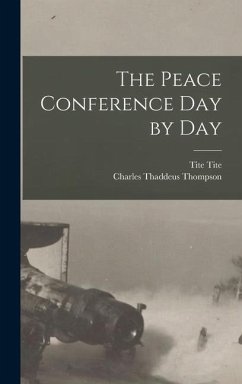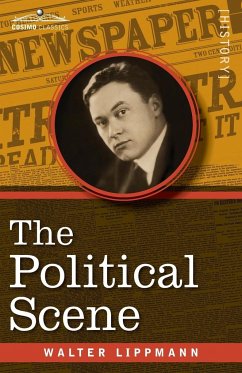
The Political Scene
An Essay on the Victory of 1918

PAYBACK Punkte
9 °P sammeln!
"[The May 1916 speech by President Wilson] was an announcement that American isolation was ended, and that we were prepared to join a League of Peace. This was the foundation of all that followed, and it was intended to make clear to the world that America wouldn't abandon its traditional policy for imperialistic adventure, that if America had to fight it would fight for the peace and order of the world." -Walter Lippmann, in "An address delivered before the American Academy of Political and Social Science at Philadelphia," April, 1917 The Political Scene-An Essay on the Victory of 1918 (1919)...
"[The May 1916 speech by President Wilson] was an announcement that American isolation was ended, and that we were prepared to join a League of Peace. This was the foundation of all that followed, and it was intended to make clear to the world that America wouldn't abandon its traditional policy for imperialistic adventure, that if America had to fight it would fight for the peace and order of the world." -Walter Lippmann, in "An address delivered before the American Academy of Political and Social Science at Philadelphia," April, 1917 The Political Scene-An Essay on the Victory of 1918 (1919), by Walter Lippmann, describes the aftermath of the victory of the Allies in World War I and the foundation of the League of Nations. The insights of Lippmann, a journalist, in this book were especially based on his role as staff member to the American Commission to Negotiate the Peace in December 1918. In this capacity, he prepared a memorandum on Wilson's Fourteen Points, which served the American delegation as a basis for the peace discussions.






